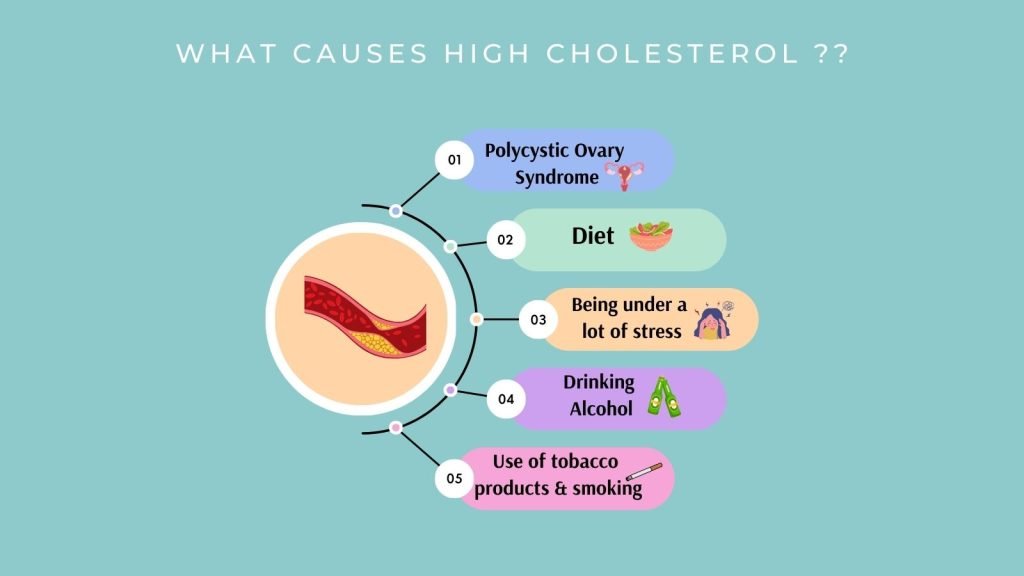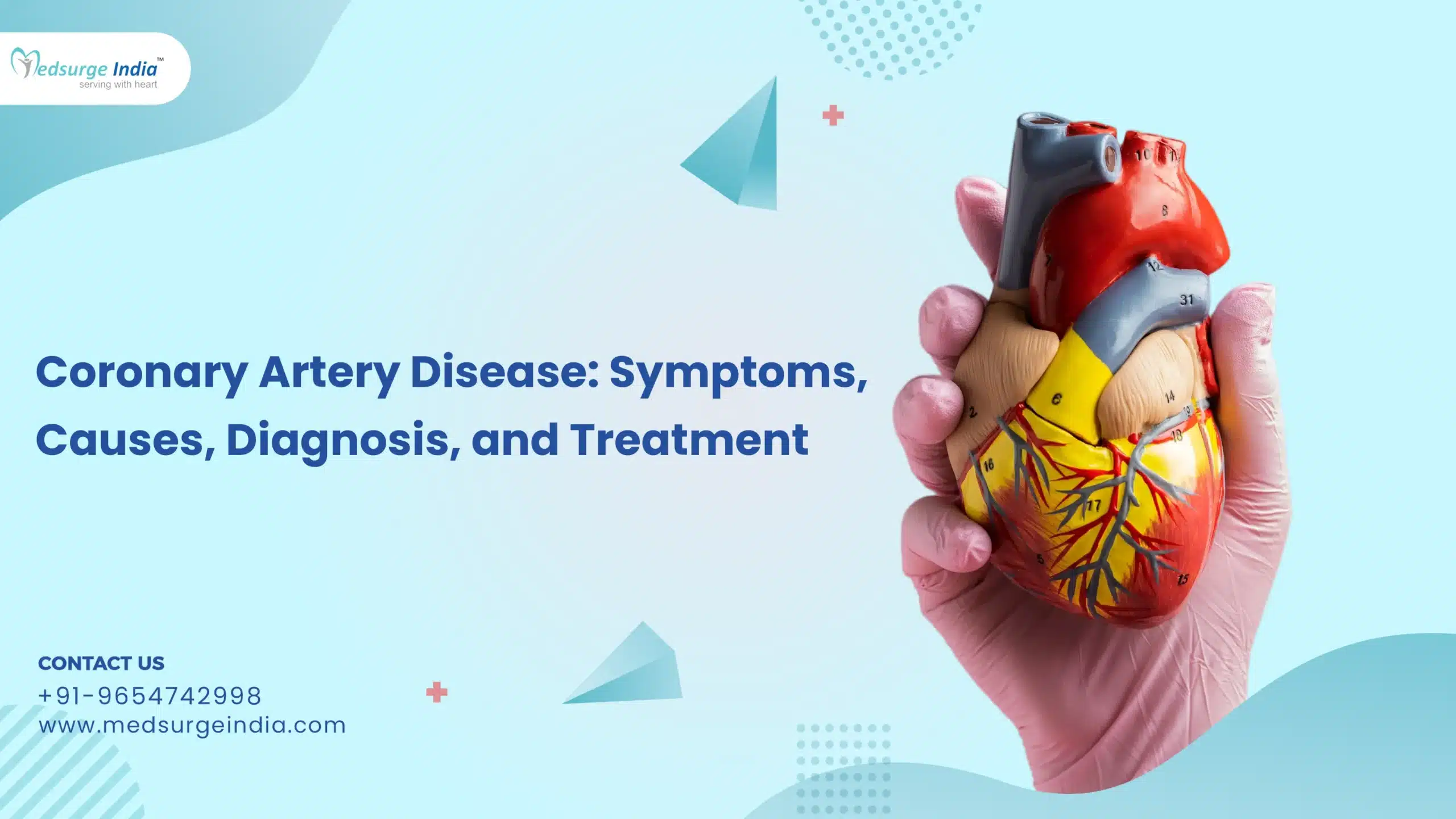
High Cholesterol: What You Need to Know
High cholesterol is a relatively prevalent problem in the world. In reality, nearly billions of people under the age of 20 and older have what might be referred to as borderline high cholesterol, according to the Centers for Disease Control and Prevention (CDC). You might not even be aware that you have this condition until you see your doctor, though, as it frequently manifests without any obvious signs.
If you have any concerns about the causes of high cholesterol levels, what to do if you have been diagnosed with it, or whether it can be reversed, continue reading.
What is High Cholesterol?
High cholesterol is a disease characterized by an excess of lipids (fats) in the circulation. Hyperlipidemia and hypercholesterolemia are other names for it. To operate properly, your body requires the correct quantity of lipids. Your body can’t use all the fats you have if you have a lot of them. Your arteries begin to thicken as a result of the excess fats. They create plaque in your blood when they mix with other elements.
This plaque may not cause any issues for years, but it grows quietly within your arteries over time. Due to this, elevated cholesterol that is left unchecked is risky. Without your knowledge, the additional lipids in your circulation contribute to the plaque’s growth. A blood test is the only method to determine if you have elevated cholesterol. You can find out how many lipids are present in your blood by having a blood test called a lipid profile. Depending on your age, sex, and history of cardiac disease, you may not have elevated cholesterol at all.
There are different types of cholesterols based on their lipids.
- Low-density lipoprotein: LDL, or “bad” cholesterol, carries cholesterol granules all over your body. LDL cholesterol piles up in the artery walls, hardening and constricting them.
- High-density lipoproteins: The “good” lipoprotein HDL removes extra cholesterol from your body and transports it to your liver.
What Causes High Cholesterol?
- Diet: Some meals may cause your LDL to rise or fall. Sometimes medical professionals will advise nutritional modifications or an appointment with a dietician to talk about your diet.
- Genes: Your risk of having elevated cholesterol may also be influenced by your genetics. Parents carry on their genes to their offspring. Your body receives guidance from specific genes on how to handle lipids and cholesterol. You may be more likely to develop elevated LDL if your parents do.
- Use of tobacco products and smoking: Smoking increases your “bad cholesterol” and reduces your “good cholesterol” (HDL). (LDL).
- Being under a lot of stress: Stress causes biochemical changes that lead to an increase in LDL production in the body.
- Drinking Alcohol: Too much alcohol in your body can increase your overall cholesterol.
- Insufficient movement: Physical action, such as cardiovascular exercise, lowers your cholesterol levels. Your body won’t create enough “good cholesterol” if you work a desk job or spend a lot of time sitting down in your leisure time.
Getting Your Cholesterol level Checked
Your medical professional might advise you to have your cholesterol readings checked more frequently if you have a history of elevated cholesterol or other cardiovascular disease risk factors. To check how much your cholesterol levels (such as your LDL cholesterol, HDL cholesterol, and triglyceride values) can all be determined by your doctor using a lipid test. The entire quantity of cholesterol in your blood is known as your total cholesterol level. LDL and HDL lipoprotein is part of it.
Your doctor might determine that you have elevated cholesterol if your readings of LDL or total cholesterol are too high. When your LDL numbers are too high and your HDL levels are too low, high cholesterol can be hazardous.
Treatment For High Cholesterol
Making some behavioral adjustments may be necessary if you have high cholesterol. Quit smoking if you do. Regularly moving around. If you’re overweight, losing just five to ten pounds can lower your chance of heart disease and enhance your cholesterol readings. Don’t forget to consume plenty of seafood, whole grains, fruits, and veggies.
Helpful – Best Heart Hospital in India
Your doctor might recommend medication and behavioral modifications depending on your risk factors. The selection of a drug or drug cocktail is influenced by a number of variables, including your individual risk factors, age, state of health, and potential drug adverse effects. Typical options include:
- Statins: The chemical your liver requires to produce cholesterol is blocked by statins. As a result, your liver filters cholesterol out of your circulation. You can choose from atorvastatin (Lipitor), fluvastatin (Lescol), lovastatin (Altoprev), pitavastatin (Livalo), pravastatin (Pravachol), rosuvastatin (Crestor), simvastatin, and pravachol. (Zocor).
- Bempedoic acid: This more recent medication functions similarly to statins but is less likely to result in muscular discomfort. Increasing the highest statin dosage with bempedoic acid (Nexletol) can greatly reduce LDL. There is also a combo drug called Nexlizet that contains ezetimibe and bempedoic acid.
- Bile acid-binding resins: Bile acids, a component required for metabolism, are produced by your liver using cholesterol. The medicines cholestyramine (Prevalite), colestipol (Colestid), and colesevelam (Welchol) passively lower cholesterol by binding to bile acids. This causes your liver to produce more bile acids by using the extra cholesterol, lowering the amount of cholesterol in your blood.
- Cholesterol absorption inhibitors: The cholesterol you consume is absorbed by your small intestine and released into your circulation. By preventing food cholesterol from being absorbed, the medication ezetimibe (Zetia) lowers blood cholesterol levels. A statin medication may be taken along with ezetimibe.
- PCSK9 blockers: These medications can increase the liver’s ability to accept LDL cholesterol, which reduces blood cholesterol levels. People with a hereditary disorder that results in extremely high LDL levels or those with a history of the coronary disease who are intolerant to statins or other cholesterol medicines may benefit from using alirocumab (Praluent) and evolocumab (Repatha). They cost a lot and are costly injections under the epidermis.
Helpful – Top 10 Cardiologists in India
How to Control High Cholesterol Levels?
By altering your habits and taking medications that your doctor prescribes, you can reduce your cholesterol readings. To lower their cholesterol to a safe level, some individuals will only need to make behavioral and dietary improvements. Others might also need to take medications to reduce their LDL.
Ranges of Cholesterol in Children and Adults
Here are the ranges for total cholesterol in adults:
- Normal Cholestrol levels: Less than 200 mg/dL.
- Borderline high: 200 to 239 mg/dL.
- High cholesterol levels: Above or at 240 mg/dL.
Here are the ranges for total cholesterol in children:
- LDL: less than 130 mg/dL.
- HDL: greater than 60 mg/dL (less than 35 mg/dL increases the chance of heart disease in your adolescence).
Risk factors for High Cholesterol Levels
You can be of high cholesterol levels if you have are:
- Obesity
- Eat a lot of trans and saturated lipids, such as those found in fast food
- Have a minimal level of exercise
- Use tobacco goods to consume
- Have a history of elevated LDL in your family
- Have a renal illness, diabetes, or hypothyroidism
- High cholesterol can affect people of all ages, genders, and cultures.
Complications of High Cholesterol Levels
A buildup of plaque in your vessels can result from elevated cholesterol if it is not treated. This plaque can restrict your vessels over time. Atherosclerosis is the name given to this disease. Atherosclerosis is a severe disease. It may restrict how much blood can travel through your vessels. Additionally, it increases your chance of getting harmful blood blockages.
Atherosclerosis may lead to numerous potentially fatal consequences, including:
- stroke
- heart attack
- angina, or chest pain
- high blood pressure
- peripheral vascular disease
- chronic kidney disease
Gallstone risk can be increased by a biliary disequilibrium brought on by high cholesterol.
How to Prevent High Cholesterol Levels?
The hereditary risk factors for elevated cholesterol are uncontrollable. Lifestyle variables can be controlled, though. To lessen the possibility of getting elevated cholesterol:
- Consume a healthy diet that’s high in fiber and low in animal lipids and cholesterol.
- Refrain from consuming booze excessively.
- Sustain a healthy weight.
- Workout frequently.
- Don’t smoke.
For regular cholesterol screening, abide by your doctor’s advice. They will probably advise you to have your cholesterol readings checked frequently if you are at risk for elevated cholesterol or coronary heart disease.
Bottom Line
High LDL typically has no signs. However, untreated elevated cholesterol can result in severe health problems. The good news is that, in many instances, your doctor can help you manage this disease and prevent complications. Follow your doctor’s suggested therapy schedule and live a healthy lifestyle to reduce your chance of complications from high cholesterol.
You may be able to accomplish and keep healthy cholesterol levels by eating a balanced diet, moving frequently, and abstaining from tobacco products. It might also assist in reducing your chance of problems brought on by high cholesterol.
Reference
- https://my.clevelandclinic.org/health/articles/11918-cholesterol-high-cholesterol-diseases
- https://www.mayoclinic.org/diseases-conditions/high-blood-cholesterol/symptoms-causes/syc-20350800
- https://www.cdc.gov/cholesterol/about.htm
- https://www.heart.org/en/health-topics/cholesterol/causes-of-high-cholesterol













